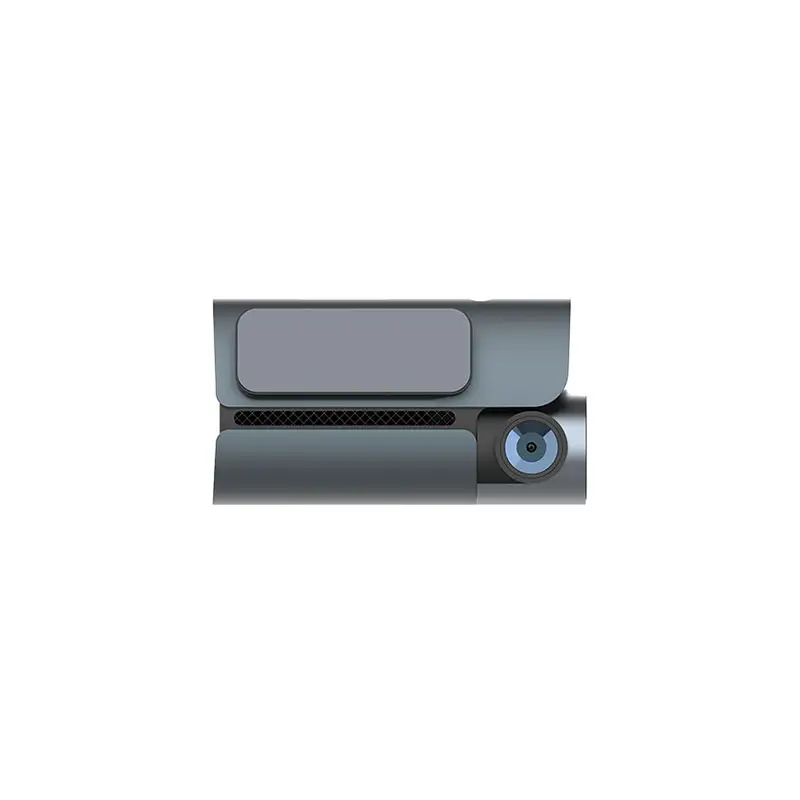Next-Generation na Pagmamanman sa Sasakyan gamit ang Mobile Connectivity
Sa modernong mundo na may mabilis na pag-unlad ng teknolohiya, ang seguridad ng sasakyan at real-time na pagmamanman ay sumulong nang lampas sa tradisyunal na dash cams. Ang pangangailangan para sa live footage, agarang mga alerto, at cloud-based na imbakan ay lumaki nang malaki. Dahil dito, 4G LTE Dash Cams ay naging mahalaga na para sa mga may-ari ng pribadong kotse, drayber ng rideshare, at mga tagapamahala ng sasakyan. Hindi tulad ng mga konbensional na modelo, ang mga modernong dash cam na ito ay hindi lang nagre-record—kumokonekta din. Kasama ang real-time na pagpapadala ng datos, GPS tracking, at mobile viewing, itinatadhana nila ang bagong pamantayan sa automotive surveillance.
Kakayahan sa Real-Time na Pag-Stream
Pagsasama sa Mobile Network para sa Live na Pag-access
4G LTE Dash Cams gumagamit ng cellular networks para ipadala ang video footage. Nilalagpasan nito ang pag-aasa sa WiFi at nagbibigay ng matatag na koneksyon saanmang may sakop ang mobile network. Ang nasa loob na SIM card ay nagkonekta sa kamera sa isang network ng datos, na nagpapahintulot sa mga user na ma-access ang video feed sa pamamagitan ng mobile apps o web platform nang real-time.
Ang ganitong kakayahan ay lalong kapaki-pakinabang sa mga user na kailangan ng remote na pagbantay sa mga sasakyan. Kung ito man ay pamamahala ng delivery fleet o pagbantay sa pagmamaneho ng isang miyembro ng pamilya, ang live streaming ay nagpapaseguro ng agarang kamalayan sa sitwasyon.
Imbakan sa Cloud at Pamamahala ng Datos
Ang live streaming ay isa lamang sa mga aspeto. Kadalasang kasama ng 4G LTE Dash Cams ang cloud storage na nag-iiwan ng mga video sa isang ligtas na paraan. Kapag nangyari ang pagnanakaw, aksidente, o di-pagkakaunawaan, maaaring makuha ng mga user ang mga video na mataas ang resolusyon nang hindi umaasa sa pisikal na SD card.
Nagpapahintulot din ang mga advanced na tool sa pamamahala ng datos na i-categorize, ihanap, at i-share nang mabilis ang mga talaan. Bawat isa sa mga tampok na ito ay higit na pinapahalagahan ng mga negosyo para sa compliance at proteksyon sa pananagutan.
Mga Naunlad na Tampok para sa Malayuang Pagmamanman
GPS Tracking na may Live Updates
Ang pagsasama ng GPS sa 4G LTE Dash Cams ay nagbibigay-daan sa mga user na makatanggap ng live na impormasyon tungkol sa lokasyon ng sasakyan. Ito ay lubhang kapaki-pakinabang para sa logistics, mga drayber ng rideshare, o mga magulang na nais subaybayan ang pagmamaneho ng kanilang mga anak. Ang real-time na mga alerto tungkol sa bilis, pagbabago ng ruta, o paglabag sa geo-fencing ay nagsisiguro ng agarang pagtugon.
Kapag pinagsama sa live na video, ang GPS tracking ay nagpapahintulot sa komprehensibong pag-unawa sa sitwasyon. Ginagawa nitong mas madali ang mabilis na pagkilos kapag may suspetsuhang aktibidad o hindi pinahihintulutang paggalaw ng sasakyan.
Mga Tool sa Komunikasyon sa Dalawang Direksyon
Ang ilang 4G LTE Dash Cams ay may kasamang mikropono at speaker na nagpapahintulot sa komunikasyon sa dalawang direksyon. Maaari itong gamitin para magbigay ng instruksyon sa mga drayber, tugunan ang mga emergency, o makipag-usap nang direkta sa mga intruso.
Ang karagdagang antas ng kontrol na ito ay nagpapalakas ng kaligtasan at pagtugon, na nagiging perpekto para sa pamamahala ng sasakyan at kaligtasan ng pamilya.
Mga pag-iisip sa seguridad at privacy
Nakaselyong Pagpapadala at Mga Kontrol sa Pag-access
Ang seguridad ay isang priyoridad pagdating sa pagpapadala ng live na video. Ang 4G LTE Dash Cams ay nag-aalok ng nakaselyong pagpapadala ng video upang maiwasan ang hindi pinahihintulutang pag-access. Maraming modelo ang may tampok na protektadong password na pag-access, pagpapatunay ng user, at mga karapatan sa pagtingin batay sa papel.
Para sa mga organisasyon na nakikitungo sa mahalagang transportasyon ng datos, ang mga kontrol na ito ay nagpapatunay na tanging napiling kawani lamang ang makakatingin at makakapamahala ng mga rekord.
Mga Babala sa Pagbabago at Emergency Uploads
Ang mga dash cam na may 4G LTE connectivity ay makakakita ng pagbabago o hindi inaasahang pagkawala ng kuryente at agad na magpapadala ng mga babala. Ang ilang mga modelo ay awtomatikong nag-upload ng mga video sa cloud kapag may mga hindi pangkaraniwang pag-vibrate o paghihiwalay ay nangyayari.
Ang mga tampok na ito ay nagpapahusay sa katiyakan ng device at nagpapanatili ng mahahalagang ebidensya sa kaso ng sinasadyang pagkasira o pinsala.

Mga Aplikasyon Sa Iba't Ibang Industriya
Pamamahala ng Fleet at Komersyal na Transportasyon
Malaking benepisyo ang nakukuha ng mga operator ng fleet mula sa 4G LTE Dash Cams. Higit sa pagrerekord, ang mga kamera na ito ay nagbibigay ng sentralisadong access sa data, mga insight sa pagganap, at analytics tungkol sa pagmamaneho ng driver. Ang mga kumpanya ay maaaring bawasan ang insurance premiums, ipatupad ang mga pamantayan sa pagmamaneho, at i-optimize ang mga ruta.
Ang mga live na video ay nagpapabuti rin sa kasiyahan ng customer sa pamamagitan ng pagtitiyak sa mga on-time na paghahatid at mabilis na resolusyon ng mga reklamo.
Paggamit sa Rideshare at Sariling Sasakyan
Para sa mga drayber ng rideshare at mga personal na may-ari ng kotse, ang 4G LTE Dash Cams ay nag-aalok ng kapayapaan ng isip. Dahil sa kakayahang live-stream, ang mga user ay makakapagdokumento ng mga interaksyon, mapipigilan ang mapang-aping mga pasahero, at matitiyak ang accountability.
Ang mga personal na user ay nagpapahalaga rin sa agarang pag-access sa mga footage sa pagkakataon ng aksidente, kahit hindi sila nasa malapit ng sasakyan sa oras na iyon.
Mga Teknikal na Rekayo at Setup
SIM Card at Mga Pangunahing Kaalaman sa Data Plan
Upang maayos na gumana, ang 4G LTE Dash Cams ay nangangailangan ng isang tugmang SIM card at aktibong data plan. Mahalaga ang pagpili ng tamang provider ng data na mayroong maaasahang coverage para sa walang tigil na live streaming at remote access.
Ang ilang mga device ay sumusuporta sa multi-network SIMs o nagpapahintulot ng roaming sa iba't ibang carrier, na nagpapabuti ng konektibidad sa mga rural o cross-border na rehiyon.
Pag-install at Pagsasama sa Mobile App
Ang pag-install ng 4G LTE Dash Cams ay karaniwang diretso. Maraming modelo ang kasama ng adhesive mounts at isinusplug sa power source ng sasakyan. Pagkatapos ilagay ang SIM card at i-configure ang mobile app, maaari nang magsimulang live stream ang mga user sa loob lamang ng ilang minuto.
Ang mga mobile app ay kadalasang may mga feature tulad ng remote playback, pagbabahagi ng snapshot, at customizable alerts, na nag-aalok ng ganap na konektadong karanasan sa pagmamanman.
Mga Bentahe Kaysa sa Tradisyunal na Dash Cams
Hindi nag-uupong Pagmamanman at Mga Alerto
Hindi tulad ng tradisyunal na dash cams na umaasa sa SD cards at lokal na imbakan, ang 4G LTE Dash Cams ay nagbibigay ng patuloy na pagmamanman, kahit na malayo ka sa iyong sasakyan. Ang mga alerto para sa pagtuklas ng galaw, pag-impact, o pagmamanipula ay maaaring ipadala kaagad sa iyong telepono.
Ang proaktibong diskarte na ito ay nagbibigay-daan para sa agarang tugon at mas matahimik na kalooban, lalo na para sa mga sasakyan na mataas ang halaga.
Maaaring palawakin para sa mga Solusyon sa Enterprise
Ang mga negosyo na may maraming sasakyan ay maaaring makinabang mula sa isang masusukat na 4G LTE Dash Cam system. Sa pamamagitan ng sentralisadong mga platform, maaaring pamahalaan ng mga administrator ang daan-daang mga camera, mag-access sa real-time footage, at pag-aralan ang data tungkol sa pag-uugali ng driver mula sa isang dashboard.
Ang gayong pagsasama ay nagpapasimple ng mga operasyon, nagpapalakas ng seguridad, at nagpapadali ng pamamahala ng pagsunod.
Mga Hangarin sa Kinabukasan sa 4G LTE Dash Cam Technology
Pagtuklas ng Insidente na May AI
Ang mga modelo sa hinaharap ng 4G LTE Dash Cams ay nagsasama ng AI para sa mas matalinong pagtuklas ng kaganapan. Kasama rito ang pag-aaral ng mga ekspresyon ng mukha ng driver, pagtuklas ng pagkapagod, at pagtuklas ng mga panganib ng pag-atake.
Pinapayagan din ng AI ang mas mabilis na pagsusuri ng mga pangunahing insidente sa pamamagitan ng pag-filter sa mga pangkaraniwang footage, na ginagawang mas mahusay ang pagkuha ng katibayan.
Integrasyon sa Smart Vehicle Ecosystems
Habang ang mga sasakyan ay nagiging mas konektado, ang 4G LTE Dash Cams ay isinasama sa mas malawak na matalinong mga ecosystem. Ang pagiging katugma sa mga matalinong dashboard, mga sasakyang sasakyan sa ulap, at mga sensor ng IoT ay lumilikha ng isang mas mahigpit na sistema ng pagsubaybay.
Ang mga pag-unlad na ito ay nagbubukas ng daan para sa predictive maintenance, advanced diagnostics, at adaptive safety responses.
FAQ
Maari bang gumana ang 4G LTE Dash Cams nang walang koneksyon sa WiFi?
Oo. Ang 4G LTE Dash Cams ay gumagamit ng cellular networks, kaya hindi ito umaasa sa WiFi. Pinapayagan nito ang paggamit sa malalayong lugar kung saan walang WiFi.
Gaano karami ang data na nagagamit ng 4G LTE Dash Cam bawat buwan?
Nag-iiba-iba ang paggamit ng data depende sa kalidad at dalas ng streaming. Sa average, maaring gumamit ang user ng 2GB hanggang 10GB bawat buwan, depende sa kanilang mga setting.
Legal ba ang paggamit ng 4G LTE Dash Cams?
Oo. Legal ito sa karamihan ng mga bansa. Gayunpaman, dapat sumunod ang mga user sa lokal na batas tungkol sa video at audio recording, lalo na sa mga pampubliko o shared spaces.
Ano ang mangyayari kung mawala ang mobile signal ng camera?
Kapag nawala ang signal ng 4G LTE Dash Cam, patuloy itong tatahan sa pagrerekord nang lokal. Kapag bumalik ang koneksyon, maaring i-upload ang footage sa cloud o muling i-resume ang live streaming.
Talaan ng mga Nilalaman
- Next-Generation na Pagmamanman sa Sasakyan gamit ang Mobile Connectivity
- Kakayahan sa Real-Time na Pag-Stream
- Mga Naunlad na Tampok para sa Malayuang Pagmamanman
- Mga pag-iisip sa seguridad at privacy
- Mga Aplikasyon Sa Iba't Ibang Industriya
- Mga Teknikal na Rekayo at Setup
- Mga Bentahe Kaysa sa Tradisyunal na Dash Cams
- Mga Hangarin sa Kinabukasan sa 4G LTE Dash Cam Technology
- FAQ



